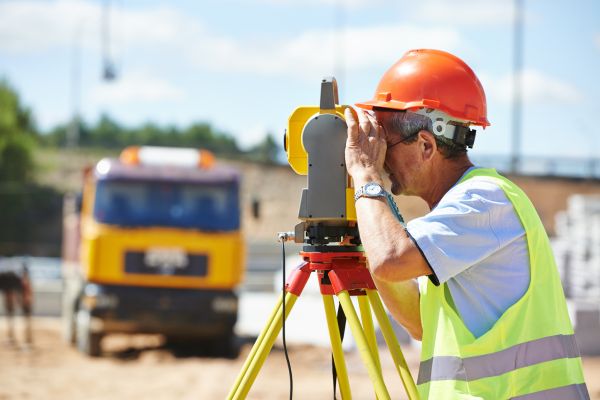JOB PROFILE
What Is a Building Surveyor?
IN THIS JOB PROFILE
You Will Learn.
- What is a Building Surveyor?
- What are the responsibilities of a Building Surveyor?
- What qualifications does a Building Surveyor need?
- What is the average salary of a Building Surveyor?
- Who employs a Building Surveyor?
- What skills does a Building Surveyor need?
- Where the latest Building Surveyor jobs are and how to apply for them.

What Is a Building Surveyor?
A Building Surveyor is responsible for assessing and managing the condition, safety, and compliance of buildings and properties. They perform detailed inspections, report on structural and maintenance issues, and ensure properties meet regulatory standards.
Their role extends to advising property owners, investors, and managers on maintenance, renovation, and compliance strategies to enhance property value and safety.
Building Surveyors play a crucial role in ensuring that properties are well-maintained and comply with legal requirements, ultimately safeguarding the long-term integrity and value of real estate assets.
What Are the Responsibilities of a Building Surveyor?
A Building Surveyor's primary duty involves conducting thorough and meticulous inspections of properties, meticulously evaluating their structural soundness, safety measures, and adherence to regulatory frameworks.
They serve as guardians of compliance, staying abreast of building codes, regulations, and health and safety standards, and providing expert guidance to rectify any deviations.
Building Surveyors are instrumental in advising on maintenance strategies and recommending renovation measures, all aimed at preserving and enhancing property value over time.
Moreover, they play a pivotal role in promoting sustainability by identifying opportunities for energy-efficient upgrades and environmentally friendly practices. Collaboration with property owners, investors, and managers is a fundamental aspect of their role, facilitating the development of comprehensive asset management strategies.
Their responsibilities also encompass meticulously documenting property assessments, managing budgets for improvement projects, overseeing ongoing maintenance endeavours, and contributing valuable insights to property valuation and investment decisions.
Building Surveyors stay at the forefront of industry trends, regulatory changes, and emerging best practices to fulfil their mission of safeguarding and optimising real estate assets.
While working as a Building Surveyor, you will be required to:
- Conduct comprehensive building inspections and condition assessments.
- Identify structural issues, safety hazards, and maintenance requirements.
- Provide recommendations for property maintenance, repair, and renovation.
- Evaluate environmental sustainability and energy efficiency aspects.
- Collaborate with property owners, investors, and managers to develop asset management strategies.
- Prepare detailed reports and documentation of property assessments.
- Manage project budgets and timelines for property improvements.
- Monitor ongoing maintenance and repair activities.
- Contribute to property valuation and investment decisions.
- Stay updated on industry trends, regulations, and best practices.
Frequently Asked Questions
What Qualifications Does a Building Surveyor Need?
In the UK, a Building Surveyor typically requires a bachelor's degree, such as a BSc (Hons) in Building Surveying or a related field. Some pursue postgraduate qualifications for specialisation.
Accreditation from prestigious institutions like the Royal Institution of Chartered Surveyors (RICS) or the Chartered Institute of Building (CIOB) is essential.
Practical experience is gained through structured training programs like the Assessment of Professional Competence (APC), often lasting several years, under the mentorship of experienced professionals.
Adherence to professional codes of ethics and conduct is mandatory, and specific licensing or certification may be required for specialised roles.
What Is the Average Salary of a Building Surveyor?
The average salary for a Building Surveyor typically ranges from £30,000 to £60,000 or more per year.
Building Surveyors with several years of experience or who have obtained professional qualifications, such as Chartered Surveyor status from the Royal Institution of Chartered Surveyors (RICS), may earn higher salaries.
Figures can vary depending on factors such as location, experience, and the specific employer.
Who Employs a Building Surveyor?
The majority of Building Surveyor jobs are found in a diverse range of sectors and organisations such as real estate companies, property management firms, and facilities management companies.
Local government authorities and public sector organisations also hire Building Surveyors to ensure public buildings meet safety and regulatory standards.
Construction companies may utilise their skills during project planning and execution phases. Additionally, Building Surveyors often find employment with banks and financial institutions, conducting property assessments for mortgage and lending purposes.

What Skills Does a Building Surveyor Need?
Building Surveyors need exceptional technical knowledge in areas such as construction, building materials, and structural analysis. They must be adept at conducting thorough property assessments, identifying structural issues, and assessing compliance with building codes and regulations.
Strong project management skills are essential, as they often oversee maintenance and renovation projects, managing budgets and timelines effectively.
Communication skills are crucial, as Building Surveyors must convey complex technical information clearly to diverse stakeholders, including property owners, investors, and regulatory authorities. They should also possess strong negotiation skills to mediate between conflicting interests and facilitate decision-making.
Attention to detail is paramount, as they are responsible for documenting property conditions and creating comprehensive reports.
Adaptability and problem-solving abilities are necessary to tackle the diverse challenges that arise in property and asset management. Staying updated on industry trends and evolving regulations is also vital.
Key skills of a Building Surveyor include:
- Technical expertise in construction, materials, and structural analysis.
- Proficiency in property assessment and inspection.
- Knowledge of building codes, regulations, and health and safety standards.
- Project management skills, including budgeting and timeline management.
- Effective communication skills for conveying complex technical information.
- Strong negotiation skills for facilitating decision-making.
- Attention to detail in documenting property conditions and creating reports.
- Problem-solving abilities to address diverse challenges in property management.
- Adaptability to changing circumstances and evolving industry trends.
- Commitment to ethical standards and professional integrity.
Property Insights.
Searching for Your Next Building Surveyor Job?
If you're searching for your next career opportunity, why not take a look at all the latest Building Surveyor jobs available now?
We work with hundreds of local authorities and private sector organisations throughout the UK.
Why not get in contact with one of our specialists who can advise on current and upcoming opportunities?
Meet The Property Team.

Upload CV
If you're searching for your next Building Surveyor job, why not upload your CV?
Once registered, your CV will be directed to the most relevant consultant and they will contact you when a suitable vacancy becomes available.